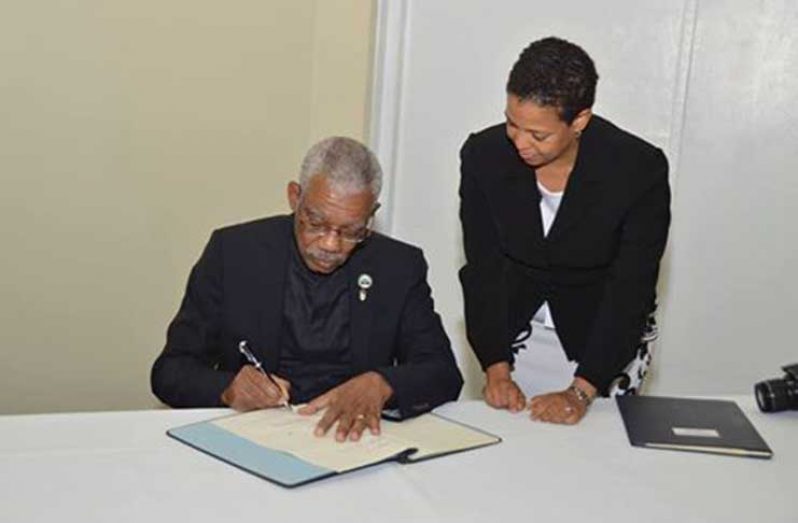By Ravin Singh in Grenada
DESPITE an apparent push to intensify efforts to achieve deeper integration in the region, 10 of the 15 Caribbean Community (CARICOM) members failed to add their signatures to the regional Arrest Warrant Treaty when it was presented to them on Thursday.
The Treaty was brought before regional leaders at the 38th meeting of the Heads of Government of CARICOM at the Radisson Hotel, in Grenada. Of the 15-member states, a mere five signed on to the Treaty which was ratified in Georgetown earlier this year. The other countries which signed on were: Dominica, Grenada, St Kitts and St Lucia.
The Arrest Warrant Treaty was first opened for signature in 2008 and the first stage of ratification agreed on in Trinidad and Tobago a year later in 2009. Up to last year, only Antigua and Barbuda, Trinidad and Tobago and Surname had signed the treaty.
According to the CARICOM Secretariat, the objective of the Treaty is to establish within CARICOM, a system of arrest and surrender of requested persons for the purposes of conducting a criminal prosecution for an applicable offence; or executing a custodial sentence where the requested persons have fled from justice after being sentenced for an applicable offence.
However, political offences and matters under military law are not provided for under the treaty. The Treaty is one of the regional security instruments that was formulated to enhance cooperation between member states in the fight against crime and to reduce the complexity, cost and delays in the existing extradition arrangements inherent in the region.
Chairman of CARICOM and Prime Minister of Grenada, Dr Keith Mitchell shared in an invited comment that more than five countries signed on to the treaty. “I think it was more than five” he said, adding that he could not recall exactly how many countries signed on at the meeting. Based on information received by the Guyana Chronicle however, only five countries were listed as signatories to the Treaty.
What was acknowledged by the Chairman though, was the fact that not all 15 CARICOM countries signed on to the Treaty at the end of the 38th meeting of CARICOM leaders. Asked why this was the case, and if this shows some amount of reservation in terms of commitment from leaders, Dr Mitchell offered that: “Many of the countries had internal issues relative to the law itself to ensure that they dot their Is and cross their Ts.”
Given this circumstance, the Chairman said that the regional body gave these countries the chance to adjust their legal framework to match that of the Arrest Warrant Treaty before any attempt was made to sign on.
Meanwhile, President David Granger, on behalf of Guyana, also signed on to an agreement which seeks to establish the Caribbean Centre for Renewable Energy and Energy Efficiency (CREEE). The other countries which signed on to the agreement during the CARICOM meeting were: Barbados, Belize, Dominica, Grenada, Jamaica, St Kitts and Nevis, St Lucia, St Vincent and the Grenadines and Suriname.



.jpg)








